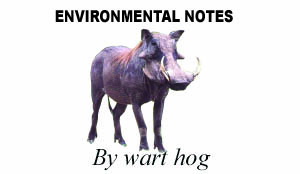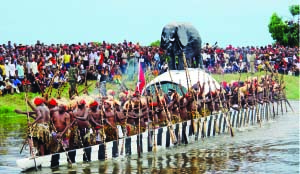 As you may already be aware, floods can have devastating effects on the economy, the environment and on people. Interestingly, they can also have benefits. Let’s first explore the bad effects and the benefits produced by floods. Later we will look at what you can do to minimise the negative effects of floods.
As you may already be aware, floods can have devastating effects on the economy, the environment and on people. Interestingly, they can also have benefits. Let’s first explore the bad effects and the benefits produced by floods. Later we will look at what you can do to minimise the negative effects of floods.
Floods have the potential to overwhelm a country’s economy due to the damage they cause. During floods, roads, bridges, farms, houses and other properties are often destroyed. People become homeless.
Additionally, the government deploys firemen, police and other emergency officers to help the affected areas. All these come at a heavy cost to people and the government. It usually takes many years for affected communities to be rehabilitated and re-built, and for business to come back to normalcy.
Floods also have a very devastating effect on the natural environment. In some places, floods can wash away chemicals and other hazardous substances and deposit them into water bodies. As a consequence, these harmful substances contaminate the water bodies.
For example in 2011, a tsunami hit Japan and sea water flooded part of the coastline. The flooding caused massive leakage in nuclear plants and has since emitted high radiation levels thereby threatening the life of both local people and other living things. Floods can also lead to loss of biodiversity therefore disturbing the ecological balance of an ecosystem.
Floods can cause injury to people. In extreme instances, flash floods for example have been known to result in a number of deaths. Water supply and electricity are disrupted and people struggle and suffer as a result.
Furthermore, flooding brings a lot of diseases and infections including cholera, dysentery and pneumonic plague. Sometimes potentially harmful insects and snakes make their ways to the homes in a flooded area and cause a lot of havoc.
For one thing, floodwaters can result into disasters. However, floods can also bring us benefits. Floods are a natural way of enhancing soil fertility. Flood waters carry lots of nutrients that are deposited in the plains. Farmers love such soils because they are perfect for cultivating different kinds of crops.
Periodic flooding was essential to the well-being of ancient communities along the Tigris-Euphrates Rivers, and the Nile River among others. The viability for hydro-electricity, a renewable source of energy is higher in flood-prone regions.

• The Kuomboka ceremony in Western Province is one classic example of the cultural significance of floods.
Floods also have cultural significance. The Kuomboka ceremony in Western Province is one classic example of the cultural significance of floods. ‘Kuomboka’ is a Lozi word that literally means ‘to move out of the water’. The ceremony came about because of the annual flood of the Zambezi River which turns the farmlands of the Malozi into a mighty lake.
As the plains around Mongu flood, the Lozi king travels in a large barge, called the Nalikwanda (best known for its black and white stripes), from his dry season palace in Lealui to his rainy season palace in Limulunga. He travels with the royal family, their staff and their belongings.
The ceremony is a colourful event which super imposes the rich cultural heritage of the Lozi people. Apart from it being a cultural marvel, the Kuomboka attracts revenue in form of foreign exchange as tourists flock in from all parts of the world.
The economic benefit of floods cannot be overemphasized. Actually Wart Hog caught up with some young men last week in Kamwala who are accruing financial profit from floods by helping people cross flooded streets!
Methods of Flood Mitigation
Humans cannot stop the rains from falling or stop torrential rains. These are natural events that must take place to ensure the balance of nature, but we can do something to prevent flooding from having catastrophic impacts.
Sometimes there is no warning of floods, and that is why it is important to think of them and prepare for them before they happen. Here are a few things you can do:
In flood prone residential areas, for example, sand bags can be placed in strategic areas to divert or prevent floodwaters from flowing into homes and destroy property. In cases of Riverine floods, Sea walls and tide gates can be built to prevent tidal waves from pushing the waters up ashore. Such ‘defence walls’are meant to prevent flood water from flowing into a particular direction.
In some places levees (A man-made structure to contain or prevent water from moving past a certain point), lakes, dams, reservoirs or retention ponds should be constructed to hold extra water during times of flooding.
These are small reservoirs built and connected to waterways. They provide a temporary storage for floodwaters. This means in an event of flooding, water is drained into the basin first, giving people more time to evacuate. It can also reduce the magnitude of downstream flooding.
Unplanned and poorly planned settlements have been known to exacerbate the negative impacts of floods. It is therefore important that the planning authorities engage properly qualified personnel in the planning system. This will ensure that people are not encroaching on waterways and blocking them in turn. Also drainage systems must be covered and kept free from objects that chock them. This way, water can quickly run through if it rains and minimize any chance of town flooding. Drainage systems should also be covered to prevent litter from getting into them.
Trees, shrubs and grass help protect the land from erosion by moving water. Those of us who live in low-lying areas must use a lot of vegetation to help break the power of moving flood water. Doing so will not only break the power of moving water but will also help reduce erosion. Yes plant a tree, some flowers or even some grass around your yard! It doesn’t matter if you plant an avocado tree and not eat from it, you should instead be happy that you would have averted floods by planting just one tree.
It is also vital that we, the Zambian citizenry should embrace attitudes that do not harm the environment.
When you buy that lolly pop, your favourite beverage or snack, DO NOT dump the wrapper anywhere other than in a designated area. Dumping waste in well place trash bins will prevent the chocking of drainage systems and eventually reduce flooding in the town.
When it rains, waterways and culverts are blocked by massive chunks of litter and debris, and water finds its way into the streets and into people’s homes. So be a good Zambian; Do not throw litter (plastics, cardboards, cloth, or simply any kind of material you are not using) carelessly.
If your area is vulnerable to floods, make sure youkeep emergency numbers and important information handy. Also have in place things such asbottled water, canned food; can opener, battery-operated radio, flashlight, protective clothing and first aid kit. If possible, avoid settling in areas vulnerable to floods
When you experience flash floods in your area, be quick, keep safe and ensure that children and the elderly are safe by leaving the house to a higher ground if possible. Remember to turn off all electrical appliances, and heating. Stay away from power lines or broken power transmission cables. Most important, keep away from flood water as it may contain chemicals or other hazardous materials or worse still sweep you off.
In circumstances where you are evacuated, wait until you have permission from emergency officers to get back inside your house.
Keep all power and electrical appliances off until the house is cleaned up properly and electrical personnel has confirmed that it is alright to put them on.
Make sure you have photographs, or a record of all the damage, as it may be needed for insurance claims.Clean the entire home, together with all the objects in it very well before you use them again. They may be contaminated.
For comments or contributions write to Wildlife & Environmental Conservation Society of Zambia, Po Box 30255, Lusaka. Telefax: +260-211-251630, Cell: 0977-780770, Email: wecsz@coppernet.zm






